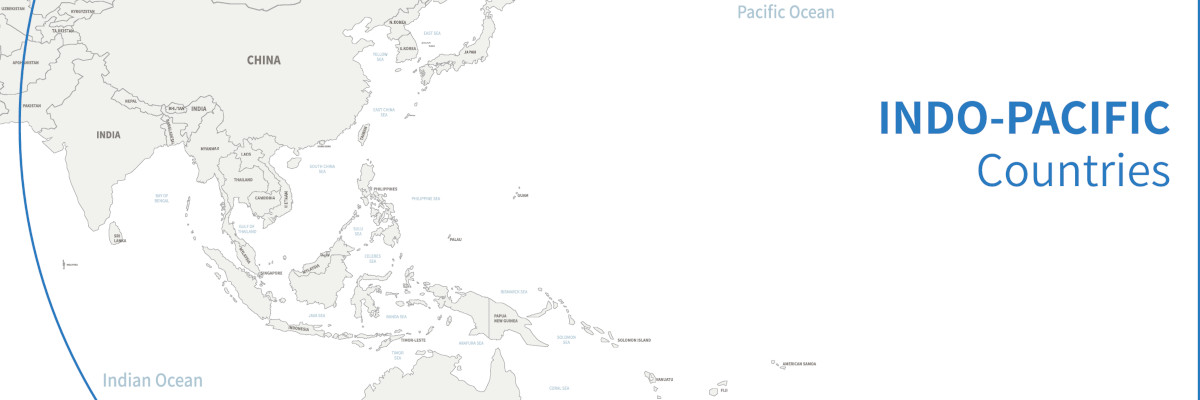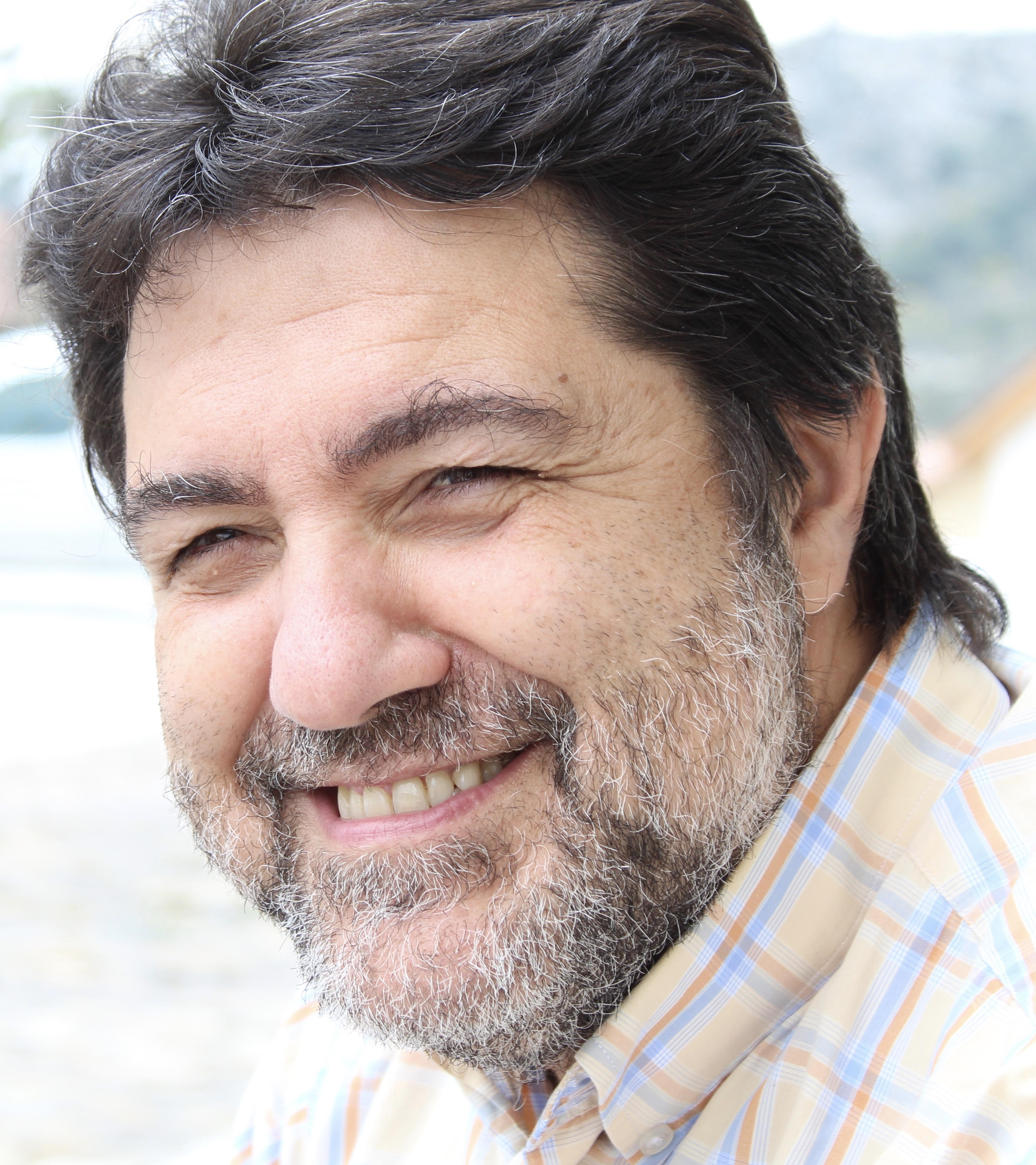Diplomacy
False democracies in the Indo - Pacific

Image Source : Shutterstock
Subscribe to our weekly newsletters for free
If you want to subscribe to World & New World Newsletter, please enter
your e-mail
Diplomacy

Image Source : Shutterstock
First Published in: Feb.22,2024
Apr.26, 2024
In the first two months of the year, general elections (presidential and/or legislative) were held in three countries of the Indo-Pacific, the area towards which the center of gravity of the world balance is shifting, according to experts: Bangladesh, Pakistan, and Indonesia. Together they account for nearly 700 million inhabitants, almost 9% of the world’s population, and host the largest number of Muslims in the world. The authoritarian bias there is so significant that the elections are mere ceremonies of power legitimization, more directed outside than inside of the country. The same happens in the Philippines, Malaysia, Thailand, etc. Dynastic democracies, tutelary democracies, or both at the same time. False democracies.
In Bangladesh, the Awami League won three out of four seats in the Parliament in January, a slightly lower percentage than in the 2018 elections, but with no diminution of its overwhelming power. The country’s prime minister is Sheikh Hasina Wajed, daughter of the father of independence, Sheikh Mujibur Rahman [1]. Abstention, estimated at 60%, best explains the electoral result. The main opposition parties boycotted the elections in protest against the lack of transparency of the process and, above all, against the attacks on basic freedoms. Some of the opposition leaders are serving prison sentences for unjustifiable reasons. Reports of arbitrary arrests and extrajudicial executions are frequent [2]. Hasina claims to maintain the progressive line of her father, but the evolution of her regime indicates otherwise. The Awami League has maintained a power alternation with the conservative nationalists. But lately, her most feared enemy has been the Islamist radicals. In this fight, Hasina has counted on the support of India. The current government of Narendra Modi was more sympathetic to the nationalists, but pragmatism has imposed a close collaboration. Authoritarian drift in both countries has favored this convergence.
In Pakistan, the elections have been even more controversial and stormy. The army is the real – if not the only – effective political actor [3]. The parties have wielded power since the military formally ceded it to them in 1998. Only nominally. The military domination over the institutions of the State remains unchanged. The reactive coup d’état has been replaced by preventive actions that determine or strongly condition the electoral result. Those who deviate or threaten to step out of the military script are discredited. It happened again this year. The populist movement of Isham Khan (a former cricket champion, the national sport) was until just two years ago the ruling party, having won the 2018 election. But he was covertly accused of a series of crimes, convicted, and imprisoned in 2022. Ironically, Khan had been the military’s preferred candidate, without whose favor he could hardly have secured victory. He believed that with his popularity, he could sideline his former protectors. Grave mistake. The military pulled the strings of justice, and Khan’s party was prevented from contesting in the elections [4]. The cricketer did not give up. From jail he denounced the military tutelage (which he had previously accepted with better or worse taste) and promoted candidacies related to his party under the label of “independents”. The challenge has been successful but insufficient. The “independents'' won a hundred seats, which are not enough to form a government majority [5]. The two parties that have been alternating in power in the last decades, the Muslim League (led by the conservative Sharif Brothers) and the People’s Party (political structure of the Bhutto family, of a confused and debatable center-left) hastened to agree to form a coalition government. Between them they have more than 130 deputies [6]. The cynicism of Pakistani politics is more than remarkable. The two parties now joining forces have been close enemies with a shared fate: both have been battered by the military, which has imprisoned and forced their leaders into exile on several occasions. In fact, the founder of the Bhutto dynasty (Zulfikar Ali) was overthrown after a military coup in 1971, charged and convicted in 1974 for the alleged murder of a political opponent and finally executed in 1979. His daughter Benazir was twice prime minister, deposed, exiled, and assassinated by an alleged Islamic extremist in 2007, when she was returning to her country. The Sharifs, powerful businessmen, have had a less tragic fate, but they have lived between favor and disgrace. Corruption has been the legal basis for their downfalls, with no little foundations. But it has been used as a weapon when it was convenient for the headquarters. Nawaz Sharif has now preferred to step back from the front line and reinstate as prime minister his brother Shehbaz, who held the post after the fall of Khan. The head of the clan went into exile in Saudi Arabia and only when he successfully negotiated the cancellation of the penalties, he returned to Pakistan to control the political process after the partial liquidation of Imran Khan. The post-election pact also has a prize for the Bhutto family. Although the formal leader of the PPP is Bilawal, Benazir’s son, who really pulls the strings is his widowed father, Asif Ali Zardari, who has also served sentences for corruption, of which there are few doubts. Zardari will be the new President, a more ceremonial position, but not without power to maintain his privileges. The outlook for the two now coalited dynasties is frightening. By 2026, Pakistan will have to pay $78 billion in foreign debt service, one of the highest in the world. This represents almost a quarter of its GDP (340 billion). Negotiations with the IMF are a dogfight, but the room for maneuver is almost nil [7]. Economic deterioration has been unstoppable in recent decades. At the beginning of the century, Pakistan’s economy was five times smaller than that of its rival, India; today it is one tenth [8]. Neither the military nor the political elites have been able to redirect the successive crisis. Pakistan is a ship adrift, in a permanent state of war with India. Both enemies have nuclear arsenals, which adds an enormous factor of danger to their recurrent disputes. Pakistan has been a major player in the protracted war in Afghanistan, as both, an ally and a rival of the United States, successively or alternately. In Washington they never knew whether the Pakistani military was helping or boycotting them. Bin Laden was killed by an American commando while hiding in Abbottabad, a city where many officers live, but the powerful military intelligence always denied knowing his whereabouts. After the withdrawal from Afghanistan, relations between Pakistan and the United States have lost weight. In Washington, the “Indian card” is now a priority. However, the traditional economic and military ties between Pakistan and China compel Americans not to neglect this elusive and chaotic partner.
In Indonesia, things are not looking any better. In the presidential elections, the winner was Prabowo Subianto, an authoritarian military officer who played an outstanding repressive role during the military dictatorship of his father-in-law, General Suharto, who led the country in the last third of the century, amid atrocious violations of human rights [9]. If the pacts in Pakistan lack any political ethics, in Indonesia it is three quarters of the same. Or worse. Five years ago, the current President, Joko Widowo (known as Jokowi), abandoned the pale progressivism of the ‘Democratic Party of Struggle’, founded by Megawati, Sukarno’s daughter, and joined the populist current in vogue. With this tactical shift he managed to defeat the conservative nationalist of GERINDRA (Great Indonesia Movement), who had turned to Prabowo as a ‘strongman’ figure to seize power. Widowo consolidated his hold on power with a populist policy of large infrastructure projects, partly financed by China, a tough hand against crime and radical Islamism, and an ambiguous balance in relations with Washington and Beijing. When he felt strong, Widowo integrated Prabowo into his government as no less than the Minister of Defense. Sukarno would have turned in his grave. That was not all. Jokowi wanted to form his own dynasty, but his son Gibran was still too young to inherit his post. He even had to twist the law (with the complicity of a judge who was his brother-in-law) so that he could be a candidate… but not for his party, from which he definitely separated, but as Prabowo’s second [10]. Success was guaranteed. The duo of former rivals has won the presidential elections by a wide margin. But in the legislative elections the result was more disputed. According to provisional data, the former general will not be able to count on an aligned Parliament. In any case, in such a corrupt and institutionally fragile country, cohabitation could be smoother than expected [11]. The director of the Asia-Pacific program at London’s renowned Chathan House anticipates changes, but he is confident that Prabowo’s pragmatism will limit his authoritarian instincts [12]. This ‘wishful thinking’ by Western analysts when assessing authoritarian regimes with a democratic façade is very recurrent and responds to the persistent logic since the Cold War. After all, what determines their blessing is not the democratic quality of political systems but their willingness to defend or act in accordance with Western interest. And in today’s times, being on the “right side” of history essentially means taking sides with the West in the strategic dispute with China.
[1] https://www.cidob.org/biografias_lideres_politicos/asia/bangladesh/hasina_wajed [2] “Bangladesh is now in effect a one-party state”.THE ECONOMIST, 8 de enero. [3] “The Military is still pulling the strings in Pakistan’s election”. MUNEEB YOUSUF & MOHAMAD USMAN BHATTI. FOREIGN POLICY, 5 de febrero. [4] “Pakistan’s real test begin after elections”. AL JAZEERA, 8 de febrero. [5] “The rise and fall, and rise again of Imran Khan”. THE NEW YORK TIMES, 11 de febrero. [6] “Imran Khan’s opponents reach deal to shut his allies out of government”. THE NEW YORK TIMES, 14 de febrero. [7] “Pakistan can’t stop the cycle of discontent”. HUSAIN HAQQANI. FOREIGN AFFAIRS, 16 de febrero. [8] “Pakistan is out of friends and out of money”. THE ECONOMIST, 14 de febrero. [9] “Indonesia’s election winner has a dark past and a cute image”. JOSEPH RACHMAN. FOREIGN POLICY, 14 de febrero. [10] “Indonesia’s election reveals its democratic challenges”. THOMAS PEPINSKY. BROOKINGS, 12 de enero. [11] “La démocratie indonésienne résistera-t-elle à la presidence de Prabowo Subianto?” COURRIER INTERNATIONAL, 16 de febrero; “The world’s third-biggest democracy could be sliding backwards”. ISHAAN THAROOR. THE WASHINGTON POST, 14 de febrero. [12] https://www.chathamhouse.org/2024/02/continuity-prabowo-means-change-indonesia; “Indonesia’s democracy is stronger that a strongman”. BEN BLAND. FOREIGN AFFAIRS, 13 de febrero.
First published in :

"Bachelor's degrees in Journalism and Contemporary History. Specialized in International News throughout a career spanning over thirty years in Public Radio and Television. Held key roles including: - Coordinator of the morning news program on world affairs at Radio Nacional de España - Chief of International News at Televisión Española (TVE) from 1989 to 1995. - Served as Director of TVE-Internacional's Midday News (1995-1999) - Director of EN PORTADA (a program on major international reports) from 2004 to 2008. Currently retired from RTVE, he contributes to the Fundación Sistema and various digital publications with analyses on international affairs. He was a Professor in the Master's program in International Relations and Communication at the Complutense University of Madrid (2000-2012). Additionally, he has been a speaker at several summer universities on international issues and has published a novel titled ""After the End"" (2012), related to the war in Yugoslavia."
Unlock articles by signing up or logging in.
Become a member for unrestricted reading!